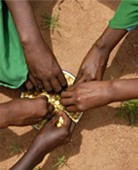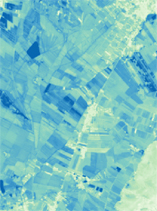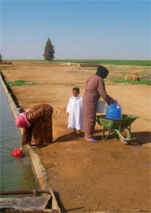FAO Land & Water & One Health
Reinforcing an integrated systems approach to sustainable agricultural land, water and soil management

Access to a healthy environment and to fresh, nutritious and diverse food is critical for everyone. The livelihood conditions and the available means for action for the most vulnerable segments of society, especially the millions of smallholder producers and the landscapes where they act upon will depend on land, water and soil availability and quality. The production processes, technologies and policies available for these producers to maintain and strengthen the supply and consumption chains are constrained by the health of these resources.
COVID-19 puts a spotlight on the need for clean water and sanitation as over 2.2 billion people globally still lack access to drinking water, while 4.2 billion lack sanitation services. Water, sanitation and hygiene (WASH) and water for food production are essential to not only combat the spread of COVID-19 but to also build resilience to communities. Without clean water, hand washing is impossible, and without water food security would not be achieved.

FAO Land & Water supports preparedness planning across the rural, peri-urban, and urban agriculture by providing resources and tools to national and city governments and supply chain actors as they work to provide safe food production and consumption through water and wastewater treatment, composting of waste, and sustainable land and soil management. FAO Land & Water assists in the resilience of smallholder farmers and communities for continuity plans and resilience in place as part of their best management practices in securing a safe and nutritious food supply.
The Action by the FAO Land and Water Division:
The Land, Water, Soils programme will support a comprehensive integrated approach to ensure the availability and sustainable management of these natural resources for all.
The benefits of composting, reusing and recycling nutrients for agricultural productivity | |
Pandemic Incident Action Checklist for the Agri-Food Value Chain | |

Key actions include:
- improving water quality and access through multiple use systems (MUS) by identifying, fostering and promoting technical innovations to address access to water, sanitation, hygiene, and freshly grown crops by building point-of-use drinking and washing stations in vulnerable communities (migrants, refugees, internally displaced persons) through geospatial and remote sensed information and analysis; wastewater management in urban areas and animal livestock for improved agricultural land and water practices (irrigation timing, manure spreading, reuse, water efficiency); the protection of water quality and ecosystem services by controlling pollution and pathogens at source;
- strengthening national policies and action plans on health, water, and food security by improving the management of agricultural runoff and livestock waste, irrigation and biosafety to boost the prevention, detection and response frameworks and provide decision-support tools for policymakers; and
- creating healthier ecosystems by ensuring the effective use of available resources and expertise to address resource scarcity in the agricultural sectors, including financing instruments for water and wastewater infrastructure, nature-based solutions and scaling up blended financing under the circular economy.
For more info please contact:

